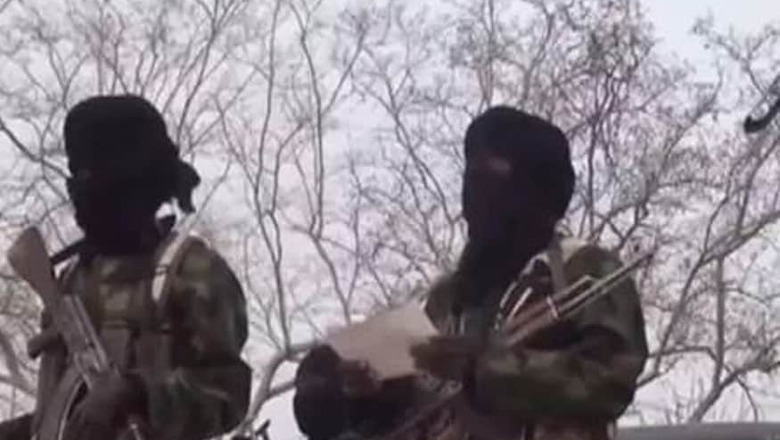
views
Abuja: Human Rights Watch on Tuesday urged Nigeria to release thousands of children detained by the military over suspected links with Boko Haram.
The US-based global watchdog said in a 50-page report released in Abuja that thousands of children are being arbitrarily detained in degrading and inhuman conditions in military cells, particularly at Giwa barracks in the restive northeastern city of Maiduguri.
"Many children are held without charge for months or years in squalid and severely overcrowded military barracks, with no contact with the outside world," HRW said.
According to the United Nations, some 3,600 children, nearly half of them girls, are believed to have been detained between January 2013 and March 2019 for suspected involvement with non-state armed groups.
"Children are being detained in horrific conditions for years, with little or no evidence of involvement with Boko Haram, and without even being taken to court," said Jo Becker, children's rights advocacy director for HRW.
"Many of these children already survived attacks by Boko Haram. The authorities' cruel treatment adds to their suffering and victimises them further," he said.
Becker conceded the country was facing "formidable challenges from the Boko Haram insurgency, while adding that detaining thousands of children is not the answer".
He said children affected by the conflict need rehabilitation and schooling, not prison.
The decade-long insurgency in northeast Nigeria by Boko Haram has killed more than 27,000 people, displaced some two million, and spilled over into neighbouring countries, sparking a dire humanitarian crisis in the region.
HRW asked the Nigerian government to sign a UN protocol that would ensure the transfer of the affected children to child protection authorities for their rehabilitation, reunification with their families and reintegration into their communities.
"If military or intelligence authorities have credible evidence of criminal offenses by children, they should transfer them to civilian judicial authorities to be treated in accordance with national and international juvenile justice standards," it said.
It said that in June it interviewed 32 children detained at Giwa barracks who said they were not taken to court as required by law.
"None were aware of any charges against them. One was detained when he was only five years old," it said.
It said the children were arrested during military operations, security sweeps, screening procedures for internally displaced people, and based on information from informants.
"Many of the children said they were arrested after fleeing Boko Haram attacks on their village or while seeking refuge at camps for internally displaced people," it added.
"One said he was arrested and detained for more than two years for allegedly selling yams to Boko Haram members," it said, adding that several abducted girls were also forced to marry Boko Haram fighters.
"Approximately one-third of the children interviewed said security forces beat them during interrogation after their arrest at Giwa barracks."
One girl who was forced to marry a Boko Haram member said that after soldiers captured her, they "were beating us with their belts, calling us names and telling us they will deal with us because we are Boko Haram wives."
Others said they were beaten if they denied association with Boko Haram, the report said.
The Nigerian military denied the report in a statement on Tuesday, saying it was not only false but threatened to undermine peace in the volatile region.
"It is an established fact that Boko Haram Terrorists (BHTs) indoctrinate women and children who they use as suicide bombers in the theatre of operations," defence spokesman Colonel Onyema Nwachukwu said.
He said that contrary to the report, children in the custody of the military were treated as victims of war and not as suspects.
"Apprehended children are kept in secured places, where they are adequately fed, profiled and de-radicalised before their release," he said.
Local and international rights bodies have accused Nigerian security forces of arbitrary arrests, detention and summary executions of Boko Haram suspects. The security forces have repeatedly denied the charges.


















Comments
0 comment